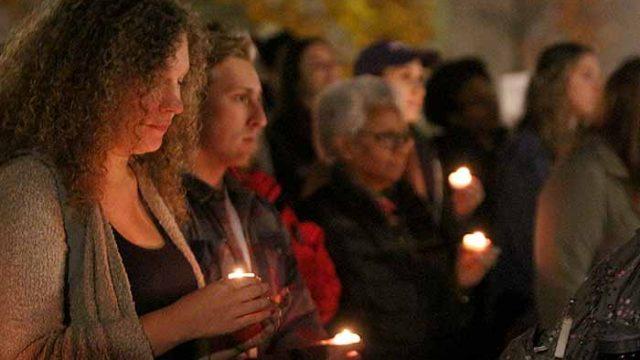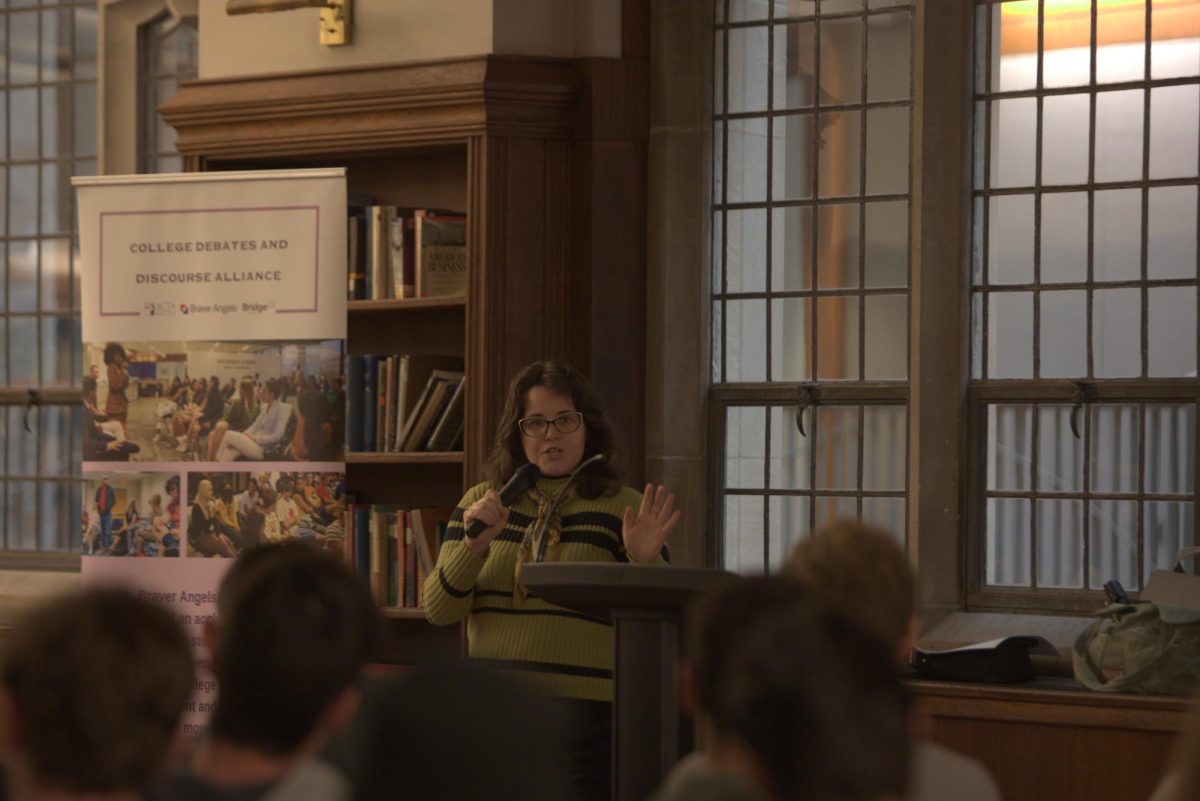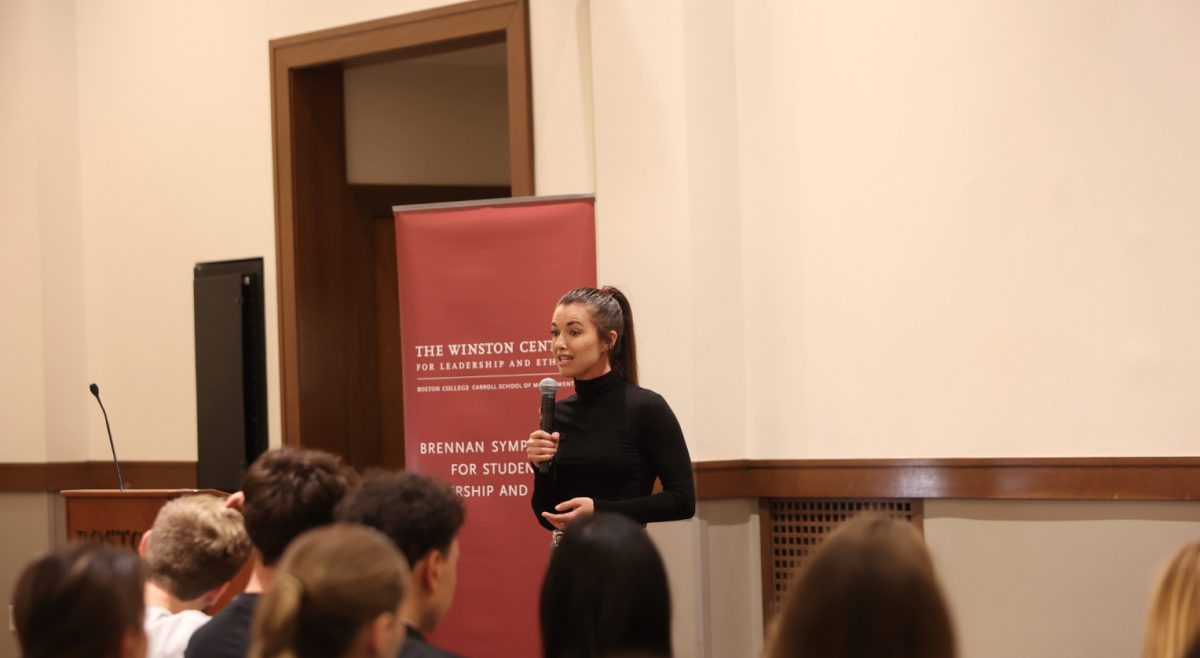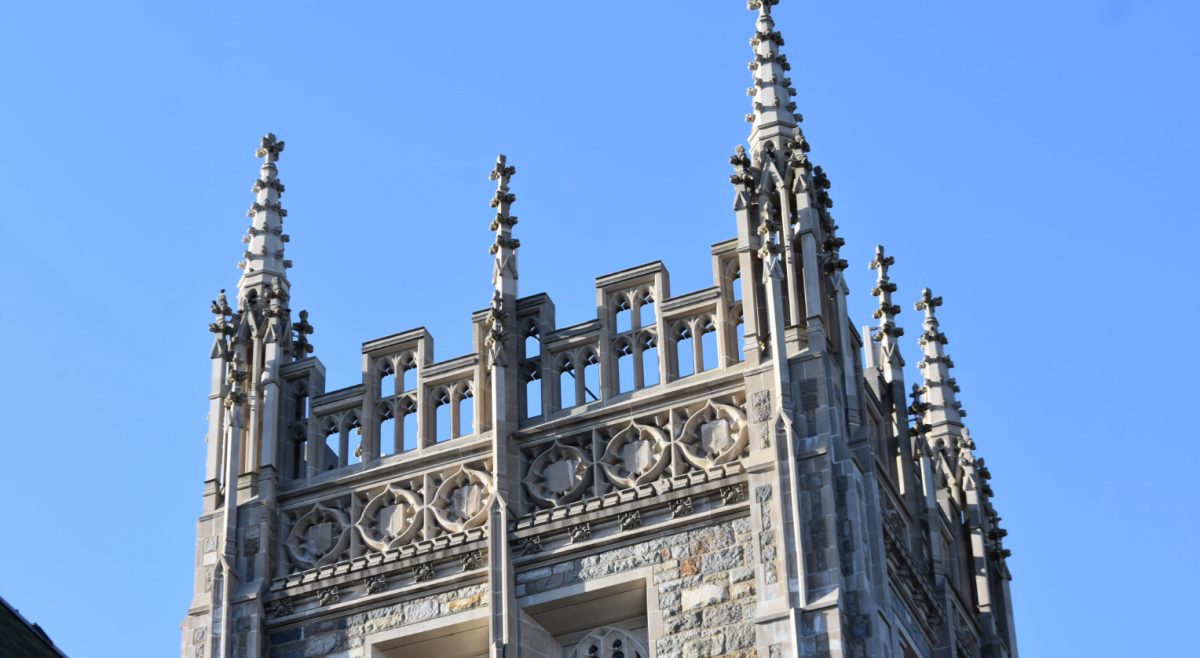Four members of Eradicate Boston College Racism have received sanctions from the University for their participation in an unregistered protest held on Nov. 14, 2016. The demonstration, held on O’Neill Plaza, was a response to the election of President Donald Trump. For their involvement in a Dec. 1 protest that called for BC to declare itself a sanctuary campus, three additional members of Eradicate are involved in ongoing disciplinary hearings.
Eradicate declined on Wednesday to release the names of those who have been sanctioned. In December, it published a screenshot of an email to the Office of the Dean of Students on its Facebook page in which it requested that all of the charges be dropped. It listed the students who received summons to hearings.
Chad Olle, LGSOE ’17, sociology Ph.D. candidate Cedrick-Michael Simmons, Sriya Bhattacharyya, LGSOE ’16, and counseling psychology Ph.D. candidate Kimberly Ashby received summons to conduct hearings. Amelie Daigle, GMCAS ’18, Kevin Ferreira, GLSOE ’19, and Raquel Saenz, GSSW ’17, received requests for conversational hearings.
Three of the four students who received sanctions were placed on probation, while another student was given an administrative warning.
“There’s been different understandings about who can register and how they can register,” Ferreira said in an interview Tuesday night.
Initially, according to Ferreira, the group was told it could not register anything that included its name, then it was told it could register with other groups, then that individuals could register. He said they are looking into contacting the office to clarify the exact options available.
Dean of Students Thomas Mogan provided a statement and granted an interview to The Heights regarding the sanctions. BC’s policy on demonstrations is that they must be registered with Mogan’s office. Eradicate maintains that its rights to freedom of speech and assembly are violated by the policy, and wrote in a letter to the editor in The Heights in December that after working with BC, it had decided it could operate most effectively as an extra-institutional organization.
Mogan wrote in his statement that on seven separate occasions before and since the unregistered demonstrations in November, including formal and informal conversations in person and over email, he had indicated to members of Eradicate his willingness to work to register events in accordance with BC’s guidelines.
“I can’t in good conscience selectively apply the policy,” he said.
Eradicate sent out a press release on Monday detailing the results of hearings and accusing the Office of the Dean of Students of arbitrarily targeting which attendees of the protest to summon to hearings. Eradicate made similar claims before Winter Break. A petition supporting those sanctioned and requesting the same punishment for participation in the protests had been signed by about 230 students, faculty, and staff as of Wednesday night.
He wrote in the statement that the members who received summons were selected based on the observations of several staff members, who concluded that “[the students] were clearly directing the activities and/or acknowledged their role in leading the demonstrations.”
Mogan wrote that these actions included welcoming people to the rally and leading chants and cheers, as well as organizing the list of people. He also cited The Gavel and The Heights, which mentioned six of the seven students, as evidence that they were engaging in behavior that suggested that they were leading the rally. Eradicate wrote in its press release that students had been selected for things such as “using a clipboard” and past involvement in the group, which has a non-hierarchical structure, as evidence of their leadership.
Ferreira said Eradicate will now renew an effort to update BC’s free speech policy. In 2015, the Undergraduate Government of BC worked with several student groups to compile a proposal and present it to administrators. It included an idea for a Committee for Free Expression, but progress stalled at the beginning of the 2015-16 school year. The new proposal would be based on the previous one. Mogan said he is willing to work with students on the new proposal, though he thinks there will inevitably be some disagreement due to competing interests.
“It’s absolutely ridiculous, especially in the historical time that we’re in, if people want to peacefully protest, that they’re not able to,” Ferreira said.
Eradicate contacted a lawyer at the ACLU in December, who said BC could face legal action if students were sanctioned. Mogan wrote in the statement that as a private university, BC reserves the right to require registration, and that given the high-profile incidents of violence that have occurred on other campuses, including recent protests at the University of California, Berkeley, safety is a major concern.
“The free expression of our students is an important part of the campus, but it must be done in a way that does not interrupt the business of the University,” he wrote.
One rule currently in place is that the use of a megaphone around academic buildings is not permitted before 4:30 p.m. to prevent the sound from disrupting ongoing classes. Mogan said the registration process allows his office to talk to students about actions at demonstrations that could be disruptive to University operations.
“The right of a student to express their opinion can’t impinge upon the right of students to have an academic environment free of disruptions,” he said.
Correction: This article initially reported that the students had received disciplinary probation. That is unconfirmed.
Featured Image by Julia Hopkins / Heights Editor



















